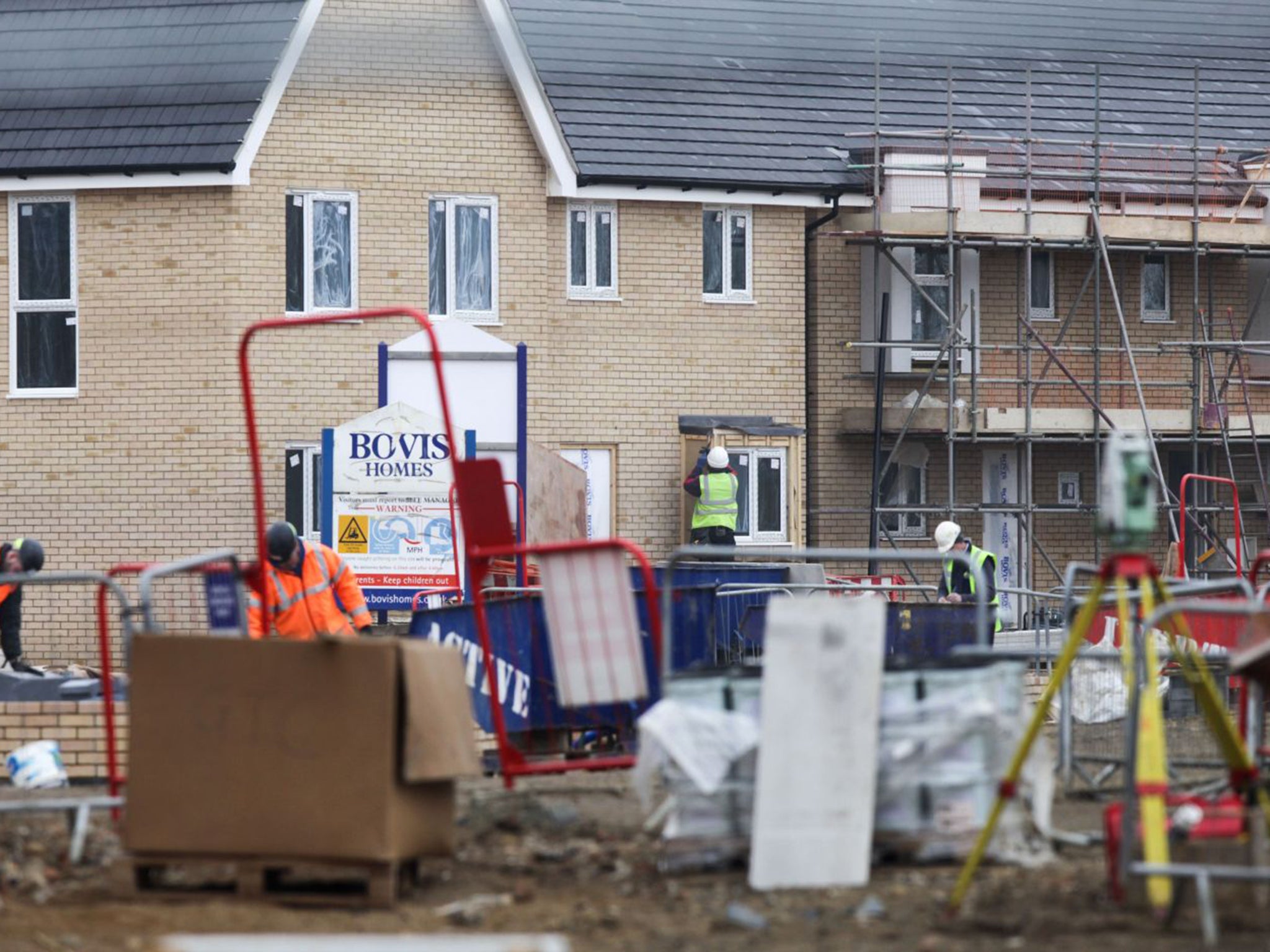Bovis faces rising costs as tradesmen jack up rates
Bovis Homes bemoaned a lack of skilled workers and rising costs today as tradesmen exploit shortages to jack up their pay rates

The housebuilder Bovis Homes bemoaned a lack of skilled workers and rising costs as tradesmen exploit shortages to demand higher rates of pay.
The company, which has about 4,000 workers on its UK sites, has seen overall build cost inflation of about 7 per cent this year, which its chief executive David Ritchie said was driven mainly by a shortage of skilled workers.
The pressure on the workforce comes despite Bovis taking on more apprentices as well as launching recruitment campaigns to bring in ex-military staff.
Mr Ritchie said: “This has been with us now for the best part of a couple of years and as we try to grow the business and ultimately build more houses to fuel that growth, it is a challenge for us and the sector. In the short term there is a lack of labour to satisfy the demand to build houses.”
He added: “It’s pretty much across all the trades. The bricklayers have been benefiting for a longer period but we’re now seeing other trades – carpenters, plumbers, electricians – all taking advantage of the market conditions.”
His comments came as the Local Government Association warned that government ambitions to build 275,000 homes by the end of the decade may not be achievable without an influx of skills. According to the LGA’s research, the number of completed construction apprenticeships fell by 58 per cent between 2009 and 2014. The Chancellor, George Osborne, is introducing a new apprentice levy on larger firms with the aim of creating three million apprenticeships by the end of the decade.
The company saw average selling prices jump by 10 per cent in the first half to £264,200, as the market experienced solid levels of mortgage availability and good home buyer confidence, backed by the extension of the Help to Buy programme and the passing of uncertainty around the general election.
As a result Bovis raised half-year profits 9 per cent to £53.8m compared with a year ago and reported record sales, with 1,525 homes completed in the six months. The company said it was on track to build 3,768 homes in the full year, and was looking to build 5,000 to 6,000 homes a year in the medium term. It also increased its interim dividend by 5p a share to 40p.
The City was unimpressed, however, marking the FTSE 250 company’s shares down 38p or 3.16 per cent yesterday to 1,163p.
Clyde Lewis, an analyst at Peel Hunt, said: “While it still looks like the group should hit market estimates, we think there is no scope for upgrades. The good news is that the land market remains as attractive as ever, with plenty of good availability. The bad news is that the group expects to see build cost inflation… at the upper end of sector expectations for those with modest London exposure – but sales price inflation should offset these pressures.”
Join our commenting forum
Join thought-provoking conversations, follow other Independent readers and see their replies
Comments
Bookmark popover
Removed from bookmarks